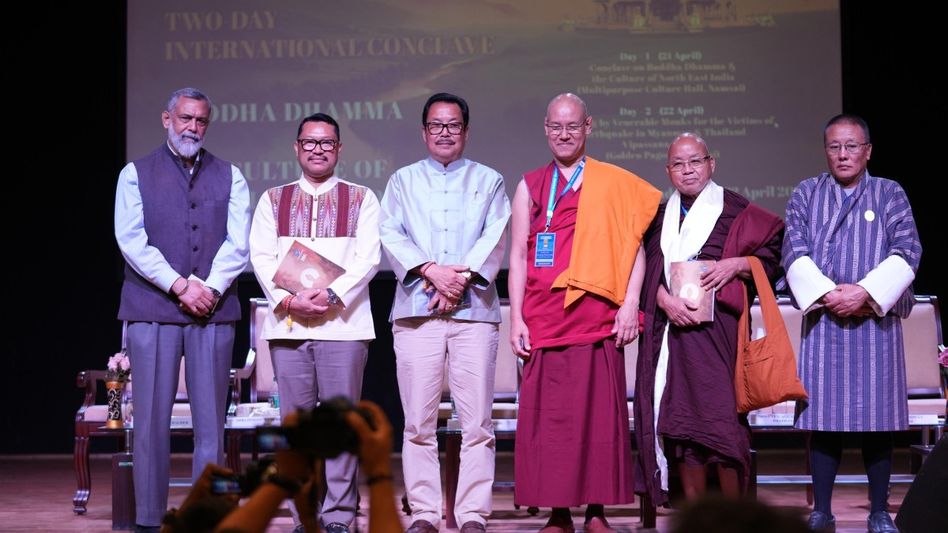Arunachal pushes for Buddhist tourism as Namsai hosts international conclave
Arunachal Pradesh's Namsai hosts an international conclave to promote Buddhist tourism. The event aims to boost the local economy and foster cultural exchange
 Arunachal pushes for Buddhist tourism as Namsai hosts international conclave
Arunachal pushes for Buddhist tourism as Namsai hosts international conclaveArunachal Pradesh’s Deputy Chief Minister, Chowna Mein, highlighted Namsai’s cultural significance at the International Conclave on Buddha Dhamma and the Culture of North-East India. He pointed out that Namsai, a district located at the eastern edge of the state, remains a living example of ancient Buddhist traditions that continue to shape the lives of its people.
At the conclave, Mein called for the development of a Buddhist tourism circuit in the state, emphasising the importance of Buddhist festivals like the recently celebrated Songpa Water Festival. “Our culture is deeply rooted in socio-religious festivals, and the Songpa Water Festival, celebrated by the Khamti community in Namsai, Changlang, and Itanagar, was a grand success with visitors from overseas participating,” Mein said.
He also mentioned that Arunachal Pradesh is home to several significant ancient Buddhist pilgrimage sites, stressing the region’s deep ties to Buddhism. He noted that the Tai Khamtis, his tribe, were among the first to resist British colonial forces, recounting how they defeated the British in the Anglo-Khamti War of 1839. “As a result of this victory, the British burned our villages and scattered our people across the region,” Mein said.
Mein further spoke about the preservation of the Pali language through the Khamti script, one of only two ancient scripts in the state. “Even the Ramayan and Mahabharat are written in the Khamti script,” he explained, emphasising the tribe’s commitment to safeguarding their cultural heritage.
The Deputy Chief Minister also lauded the work of the Mahabodhi Society in the region and expressed hope for the establishment of a skill development centre to empower the local youth. The conclave was organised by the International Buddhist Confederation (IBC) in partnership with the Ministry of Culture and the government of Arunachal Pradesh, with support from the Mahabodhi Society of Namsai. Over 300 participants, including Buddhist leaders, scholars, and political representatives, attended the event.
The conclave featured international participation, with representatives from Bhutan, Myanmar, and Cambodia engaging in discussions. Bhutan’s Consul General in Guwahati, Jigme Thinly Namgyal, addressed the gathering at the inaugural session.
Zingnu Namchoom, MLA of Namsai, underscored the deep integration of Buddhist teachings into everyday life. “Our dharma is our culture, which is our way of life,” he stated, noting that even in weddings, teachings from the Buddha are shared to guide married life.
The Dhamma address was delivered by Most Ven. Aggadhamma Bhaddanta, Chief Abbot of the Pariyatti Sasana Buddha Vihara in Namsai. IBC Secretary General, Shartse Khensur Jangchup Choeden Rinpoche, welcomed the attendees, while IBC Director General, Abhijit Halder, provided an overview of the event.
The event included discussions on the historical relevance of Buddha Dhamma in North-East India, as well as the art, culture, and heritage of Buddhist communities in the region. A special session on the cultural impact on Buddhists in the region was also held. As a gesture of solidarity, special prayers and chanting will be held at the Golden Pagoda for the victims of the recent earthquake in Myanmar and Thailand, followed by a session on Vipassana meditation.
Copyright©2025 Living Media India Limited. For reprint rights: Syndications Today









